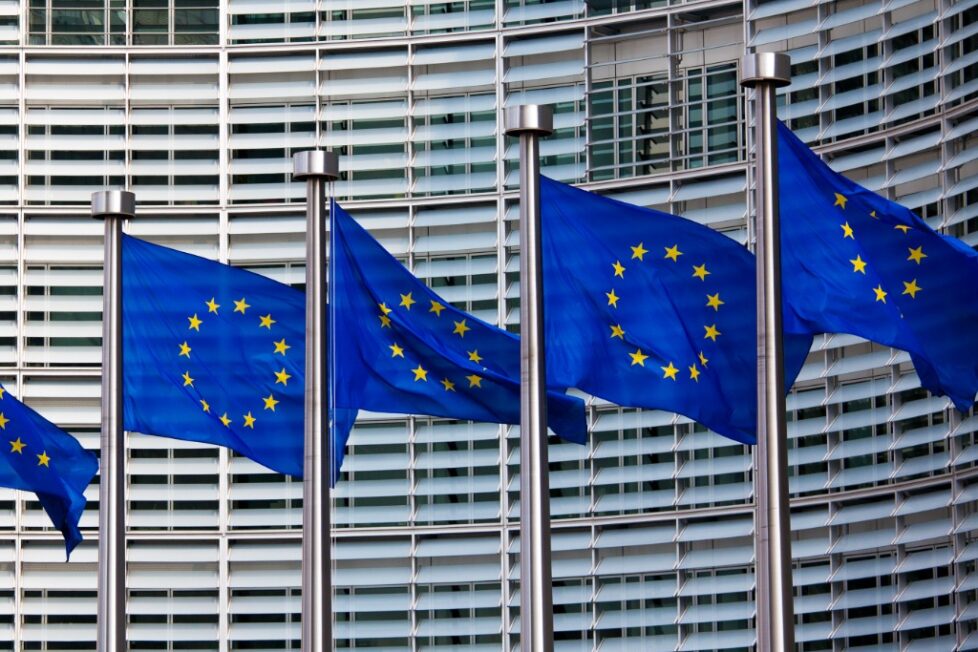EU Commission Launches €800 Million Subsidy Program to Support Renewable Hydrogen Producers


The European Commission announced the launch its first pilot auction under the European Hydrogen Bank, aimed at helping develop the market for renewable hydrogen, a key element of the plan to decarbonize heavy industry and transport.
Hydrogen is viewed as one of the key building blocks of the transition to a cleaner energy future, particularly for sectors with difficult to abate emissions, in which renewable energy solutions such as wind or solar are less practical.
Around 90 million metric tons of hydrogen are produced annually, although the vast majority is extracted using fossil fuels, which create pollutants and GHG emissions. The development of clean hydrogen capacity, such as green hydrogen, which uses renewable energy to power the process to extract hydrogen from other materials, will require massive investments in areas including infrastructure, electrolysis, and transport.
In 2022, the EU Commission announced plans to dramatically scale up hydrogen production in Europe, and proposed a Hydrogen Accelerator, envisioning scaling renewable hydrogen domestic production to 10 million tons, along with 10 million additional tons of hydrogen imports by 2030. More recently, REPowerEU, the EU plan to end its reliance on Russian fossil fuels includes investment proposals of €27 billion for key hydrogen infrastructure through 2030.
Wopke Hoekstra, Commissioner for Climate Action, said:
“Hydrogen is going to be a key technology to decarbonise Europe’s industry and help deliver our 2030 and 2050 climate targets. Today’s first EU-wide auction for renewable hydrogen production sends a clear signal that Europe is the place to invest in renewable hydrogen production, and in hydrogen-based industries.”
The launch of the Hydrogen Bank auctions marks part of the EU’s efforts to build a market for renewable hydrogen, stimulate investments in the production capacity, and bring production to scale. Under the new auction process, producers of renewable hydrogen can bid for support in the form of a fixed premium per kilogram of hydrogen produced, up to a ceiling of 4.5€/kg, with selected projects receiving the awarded subsidy on top of the market revenues that they generate from hydrogen sales, for up to 10 years. Once granted an award, producers will have to start producing renewable hydrogen within five years.
The Commission said that the premium awarded to producers is intended to bridge the gap between the price of production and the price consumers are currently willing to pay, in a market where non-renewable hydrogen is still cheaper to produce. The first auction will act as a pilot for the program, enabling data collection about the EU’s renewable hydrogen pipeline, the market for this kind of support, and the costs and market price for renewable hydrogen. The Commission added that it intends to launch a second round of auctions next year.
In addition to the launch of the auction, the Commission said that it will also offer a new “Auctions-as-a-service” mechanism under the Hydrogen Bank, under which member states will be able to fund hydrogen projects that were not selected in the auction due to budget limitations.
Funding for the auction subsidies will be channeled through the EU Innovation Fund, one of the world’s largest funding programs for the demonstration of innovative low-carbon technologies.
Earlier this year, the Commission launched proposed rules outlining the definition for what constitutes “renewable hydrogen.” One of the most stringent of the proposed conditions for what constitutes renewable hydrogen is the principle of “additionality,” requires electrolyzers to be connected to new renewable electricity production, ensuring an increase in the volume of renewable energy available to the grid compared to what exists already. The rules also include criteria ensuring that production only occurs where sufficient renewable energy is available.
Maroš Šefčovič, Executive Vice-President for European Green Deal, said:
“Today’s launch is about connecting supply and demand for renewable hydrogen. It is about creating transparency about price points, which will help kickstart a European hydrogen market. In turn, this will help accelerate the EU’s clean energy transition while maintaining our competitiveness and preserving Europe’s position as a leading global economic power.”